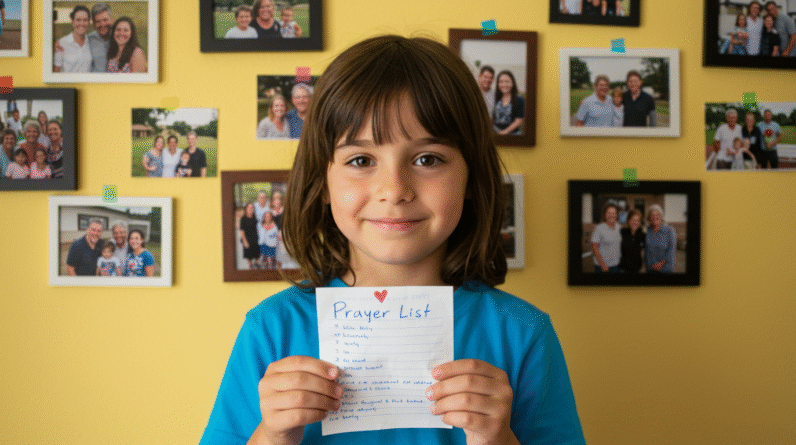5 Biblical Ways to Discipline Your Child with Love
When it comes to parenting, finding the right balance between discipline and love can be both challenging and rewarding. Especially when you want to nurture a connection rooted in faith, seeking guidance from the Bible provides a timeless framework. Here, let’s uncover five biblical principles for disciplining your child with love. These are not just fleeting tips but profound ways to connect with your child while instilling the values you cherish.
The Essence of Disciplining with Love
Before delving into the specific methods, it’s important to ground our understanding of what it truly means to “discipline with love.” Disciplining with love does not mean the absence of rules or consequences. Rather, it embodies correction with empathy, understanding, and unwavering support. It’s about guiding children in a way that’s aligned with the values stitched throughout the biblical narrative. When you discipline with love, you’re not merely focusing on correcting behavior but also nurturing the heart of your child.
1. Lead by Example
One of the most powerful ways to discipline with love is to model the behavior you want to see reflected in your children. As the saying goes, actions speak louder than words. In the framework of biblical teachings, this means living a life that exemplifies the values you wish to instill in them. Consider the Bible’s guidance in Proverbs 22:6, where it says, “Start children off on the way they should go, and even when they are old they will not turn from it.”
Your children learn from what you do, far more than what you say. When you practice patience, kindness, and integrity, you indirectly teach these values. In a world filled with noise, your consistent example becomes their guide, helping them understand the importance of living a life that honors their faith.
2. Use Gentle Correction
When mistakes happen, and they surely will, gentle correction is a method that aligns beautifully with the principle of love-centered discipline. Proverbs 15:1 offers a blueprint for how to correct your child: “A gentle answer turns away wrath, but a harsh word stirs up anger” (Proverbs 15:1).
Gentle correction is not about avoiding discipline or refusing to address inappropriate behavior. Instead, it’s about engaging your child in a conversation that acknowledges their mistake while guiding them towards making better decisions. Using calm and loving words sets the stage for a genuine learning experience, reinforcing your connection with them and empowering them to make positive changes.
Corrective Conversations
Think of corrective conversations as opportunities to teach wisdom rather than imposing authority. This approach helps children understand the effect of their actions in a safe space where they feel loved and respected. When you replace judgment with understanding, you weave lessons into the fabric of their hearts and minds, allowing them to carry those lessons forward.
3. Encourage Heartfelt Communication
Open and honest communication is the bedrock of a strong relationship. Fostering an environment where your child feels comfortable expressing their thoughts and feelings aligns directly with biblical teachings. As it is stated in James 1:19, “Everyone should be quick to listen, slow to speak and slow to become angry” (James 1:19).
Heartfelt communication is much more than just talking. It’s listening intently, asking questions that dive deeper, and meeting them where they are emotionally. By doing so, you encourage an exchange of ideas and emotions that honors your child’s thoughts and considers their perspective.
The Power of Active Listening
Active listening is a gift that strengthens your relationship. It shows your child that you value their input and care about their emotions, validating their experiences as individuals. This form of respect in communication lays the foundation for mutual trust and understanding, seeds that with time grow into a strong, healthy relationship.

4. Implement Consistent Boundaries
Boundaries are an essential aspect of discipline with love. They provide a framework within which children feel safe to explore and grow. Establishing clear, consistent boundaries demonstrates love by setting expectations that make them aware of what is acceptable behavior and what is not.
Boundaries, in a biblical context, offer guidance that is rooted in respect for the individual and the family unit. Ephesians 6:4 advises, “Fathers, do not exasperate your children; instead, bring them up in the training and instruction of the Lord” (Ephesians 6:4). Setting boundaries helps children understand limits while cultivating a sense of security and respect.
The Balance of Freedom and Responsibility
Maintaining balance between freedom and discipline is critical when setting boundaries. Encourage your child to embrace freedom within these limits while understanding the importance of consequences for crossing them, overseen with your guidance and love. By doing so, you’re cultivating an environment where they feel empowered to make decisions while understanding the weight their choices carry.
5. Offer Forgiveness and Grace
Forgiveness is a cornerstone of love-centered discipline. Children, like all humans, are imperfect, and they will make mistakes. Offering forgiveness teaches them the essence of grace and mercy that runs through biblical teachings.
Colossians 3:13 calls us to forgive as the Lord forgave us: “Bear with each other and forgive one another if any of you has a grievance against someone. Forgive as the Lord forgave you” (Colossians 3:13). When you offer forgiveness, you extend a loving hand that reassures them of your unwavering support, providing space and encouragement to grow and learn from their mistakes.
Teaching Redemption and Growth
Forgiveness isn’t merely about letting go of wrongs; it’s a profound lesson in redemption and growth. As you forgive, you teach your child the importance of second chances and the transformative power of grace. Discuss their actions and work together on how they can make amends, sowing the seeds of empathy and responsibility in their hearts.
The Impact of Disciplining with Love
The journey of disciplining with love is one of patience, commitment, and enduring faith. The principles outlined create an environment where children thrive, enveloped in love and guidance that align with biblical teachings. As you practice the art of faith-based parenting, these steps not only shape the moral compass of your child but also deepen your relationship with them, laying a foundation for thoughtful, conscious living that honors your faith.
In this ongoing journey, your role is not to mold perfection but to nurture a resilient heart that knows love and discipline aren’t mutually exclusive. As you cultivate this balance, cherish the opportunity to be both a guide and a student in this sacred journey, reflecting God’s love and wisdom in your everyday interactions.
Explore More
For further reading and encouragement, check out these posts:
👉 7 Bible Verses About Faith in Hard Times
👉 Job’s Faith: What We Can Learn From His Trials
👉 How To Trust God When Everything Falls Apart
👉 Why God Allows Suffering – A Biblical Perspective
👉 Faith Over Fear: How To Stand Strong In Uncertain Seasons
👉 How To Encourage Someone Struggling With Their Faith
👉 5 Prayers for Strength When You’re Feeling Weak

📘 Jesus and the Woman Caught in Adultery – Grace and Mercy Over Judgement
A powerful retelling of John 8:1-11. This book brings to life the depth of forgiveness, mercy, and God’s unwavering love.
👉 Check it now on Amazon
As a ClickBank Affiliate, I earn from qualifying purchases.
Acknowledgment: All Bible verses referenced in this article were accessed via Bible Gateway (or Bible Hub).
“Want to explore more? Check out our latest post on Why Jesus? and discover the life-changing truth of the Gospel!”








